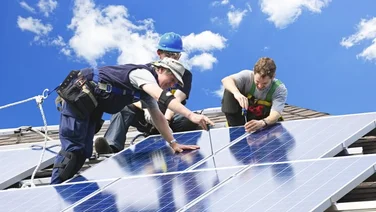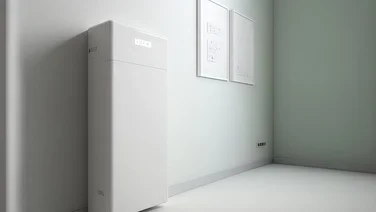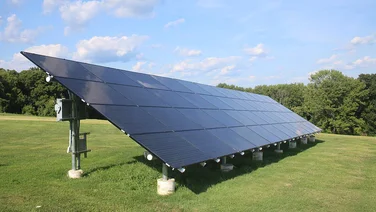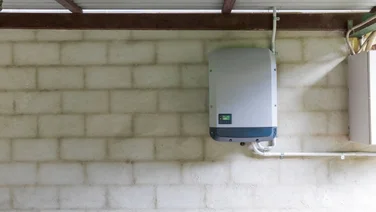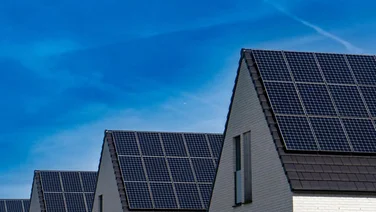- Irish residents can get help installing solar panels from the government
- The Solar PV scheme can be applied for online
- You’ll need to get a solar photovoltaic (PV) installer in place first
- You then have eight months to complete the installation to get the grant
- As a bonus, solar PV also qualifies for 0% VAT in Ireland

Cliffs of Moher, County Clare, Ireland – credit Sean Kuriyan / Unsplash
The Irish government has grants to help people with the cost of solar panels. These include, but are not limited to:
- SEAI Solar Electricity Grant (Solar PV)
- Solar Water Heating Grant
There is also the National Home Energy Upgrade Scheme, a bundled delivery model allowing homeowners to access multiple SEAI grants through a single provider, known as a ‘One-Stop Shop’.
It streamlines the process by coordinating the work, handling paperwork, and applying grant discounts upfront for home energy upgrades.
Homeowners in Ireland can access grants like these to support the installation of solar panels, primarily through the Sustainable Energy Authority of Ireland (SEAI).
| Grant | Description | Typical grant amount | Potential savings (Annual) |
|---|---|---|---|
| Solar Electricity Grant (Solar PV) | For installing solar photovoltaic (PV) panels to generate electricity for home use | Up to €1,800 | ~€700 and €1,000 on electricity bills |
| Solar Water Heating Grant | For installing solar thermal systems to heat domestic water | Up to €1,200 | ~€192 and €240 on water heating bills |
| National Home Energy Upgrade Scheme | One-Stop Shop approach bundling multiple upgrades (e.g., insulation, heating, solar) via SEAI-registered contractor | Varies (can exceed €25,000 depending on measures) | Up to 50%+ reduction in overall energy bills |
What is the Sustainability Energy Authority of Ireland?
The Sustainable Energy Authority of Ireland (SEAI) is a government body responsible for promoting sustainable energy throughout Ireland. Its mission is clear: improve energy efficiency, promote renewable energy sources, and reduce carbon emissions.
To this end, the SEAI is a key player in shaping the future of clean energy in Ireland.
One of the SEAI’s main focuses is promoting the country’s adoption of solar energy. For this reason, the agency offers several incentives to encourage both residential and commercial adoption of solar energy technologies.
These initiatives include grants, detailed guidance, and technical support to make solar installations more accessible and affordable for everyone. One of the flagship SEAI schemes is the Solar Electricity Grant.
This is explicitly designed to help homeowners who want to install solar PV panels. The grant aims to help with the upfront costs of purchasing and installing PV systems, making solar power a more viable option for a wider population.
The SEAI also offers valuable resources on best installation and maintenance practices and advice on maximizing the efficiency and benefits of solar energy systems.
For businesses, the SEAI provides customized solutions that assist in incorporating solar power into existing energy systems, complementing the energy efficiency measures already in place.
What is the Solar Electricity Grant?
The SEAI’s Solar PV Grant, sometimes called the ‘Solar Electricity Grant,’ is designed to help Irish homeowners install solar PV panels on their properties. The grant aims to help cover the costs associated with installing solar PV systems, making solar energy a more accessible and affordable option.
The amount you can claim through the scheme depends on the size of your installation. Depending on the system’s kWp output, you can get up to a maximum of €1,800 (down from €2,100 in 2024) from the SEAI’s allocated fund through the Solar PV Grant.
Grant approvals are valid for exactly eight months, so once approved, you shouldn’t hesitate to start the work.
The sooner you start the process, the better, as the PV installation company and surveyors must also submit the necessary paperwork before this deadline.
This is how you know you’re eligible:
- You must own a home built and occupied before 31st December 2020.
- A qualified and SEAI-registered contractor must carry out the installation.
- Your home must not have previously received any SEAI grants for solar PV.
- The solar PV installation must not have started before the grant application is approved.
- You must not have purchased any PV materials before applying (the grant cannot be applied retroactively).
Always check the SEAI’s official website or contact them directly for the most up-to-date information and full terms and conditions.
This is how you apply:
- After installation, a BER assessment may be required to complete the process.
- Start by finding a registered solar PV installation company, as advised by the SEAI.
- Once you’ve chosen an installer, you can begin the official grant application process.
- Visit the SEAI’s official grant application page to access the online form.
- You will need an email address to create an account and proceed with the application.
- Alternatively, you can apply using a paper-based application form.
- For either method, you’ll need:
- Your full home address
- Your bank account’s IBAN and BIC
- Your Meter Point Reference Number (MPRN), found at the top of your electricity bill
- The build date of your home
- The name of your chosen solar PV installer
- The intended size of the solar PV system (provided by your installer)
- IBAN (International Bank Account Number) and BIC (Bank Identifier Code/SWIFT) are used to identify your bank for international transactions.
- After installation, a BER assessment may be required to complete the process.
0% VAT on solar panels
One of the coolest things about the Solar PV grant, or solar PV installations in general, is that the work attracts a 0% value-added tax (VAT) incentive. This will immediately save you 13% (the previous VAT rate) of the total cost.
This was first launched in May of 2023 and can only be claimed in a single contract of works or invoice from the installation company.
For obvious reasons, the incentive’s idea is to promote the adoption of solar PV uptake by Irish nationals further. 13% savings is not to be sniffed at, and the savings can be substantial for high-ticket-value objects like solar PV installations.

What is the solar water heating grant?
Like solar PV systems, solar water heating systems—technically called solar thermal systems—are also eligible for SEAI grants. These systems harness the sun’s energy to heat water for your home, typically supplying at least 50% of your annual hot water needs.
Most systems require a special solar hot water cylinder to store and deliver the heated water. These can be standalone or combined systems (with a traditional boiler-fed tank), significantly reducing hot water production and maintenance costs.
If eligible, homeowners can receive a €1,200 grant to install a solar water heating system.
This is how you know you’re eligible:
- Must own a home that was constructed and occupied before 2021.
- The eligibility is determined based on the date of the electricity meter installation, not just the build date.
- Private landlords are also eligible to apply.
- The home must not have previously received an SEAI grant for solar water heating.
- Some technical checks are required before approval; a registered installer can help with this process.
This is how you apply:
- Choose a registered solar thermal installer to assess your property and provide a system design.
- Visit the SEAI official website and go to the Solar Water Heating Grant section.
- Begin the online or paper-based application process.
- Prepare the following information:
- Your full home address
- The MPRN (Meter Point Reference Number) from your electricity bill
- Your IBAN and BIC for payment
- The build date of your home
- The name of your chosen installer and details of the proposed system
- Ensure no work starts before the grant is approved; retroactive applications are not accepted.
- After installation, a BER assessment may be required to complete the process.
How much can I save through 0% VAT?
As you can imagine, an immediate 13% savings on a solar PV installation can add up to considerable savings. While the total you’d save depends on the system’s size, it could be as much as €1,000.
Let’s assume a 2-kWp system would cost at least €6,000 to give you an idea of the savings involved. Based on this (though note the initial cost could be more depending on the system installed), you’d previously have to pay €780 in VAT.
To get the 0% VAT benefit, you’ll need to submit the final invoice from your PV installer once the work is complete. In most cases, the invoice will likely reflect the 0% VAT, given the nature of the job anyway.
Considering you can then get €0.25c per kWh for selling back excess electricity, this immediate saving and regular income from your investment will reduce the payback period for installation over time.
“This will result in a significant reduction in the installation cost for households and, I believe, will encourage more people to use this innovative technology,” explains Michael McGrath, Irish Minister for Finance.
While this move will help consumers, it will also help the environment.
Eamon Ryan, Irish Minister for the Environment, Climate and Communications, said 50,000 homes in Ireland have solar panels, with 17,000 solar installations connecting to the grid in 2024
“This is expected to increase further as prices come down and solar becomes more mainstream,” he explained.
Can I get solar power grants if I live in Northern Ireland?
In short, no. Northern Ireland is not part of the Republic of Ireland, so residents cannot access the Republic of Ireland government grants or schemes. Please check our guide to government solar panel grants in the UK for more information.
That being said, businesses in Northern Ireland can apply for funding to cover 20% of a solar panel installation. Also, as of May 1st, 2023, solar panels, like in the Republic of Ireland, attract a 0% VAT incentive.
However, they can get some advice from Northern Irish Energy about cutting their energy bills and using solar energy.

Summary
- Solar panels are a great way to save money and reduce your environmental footprint over time.
- The SEAI Solar PV Grant makes solar installations more accessible for Irish homeowners.
- 0% VAT on solar panel installations offers immediate savings and a faster return on investment.
- Grants for solar water heating systems provide additional options for energy efficiency.
- Northern Ireland residents have separate schemes and incentives to explore solar adoption.


